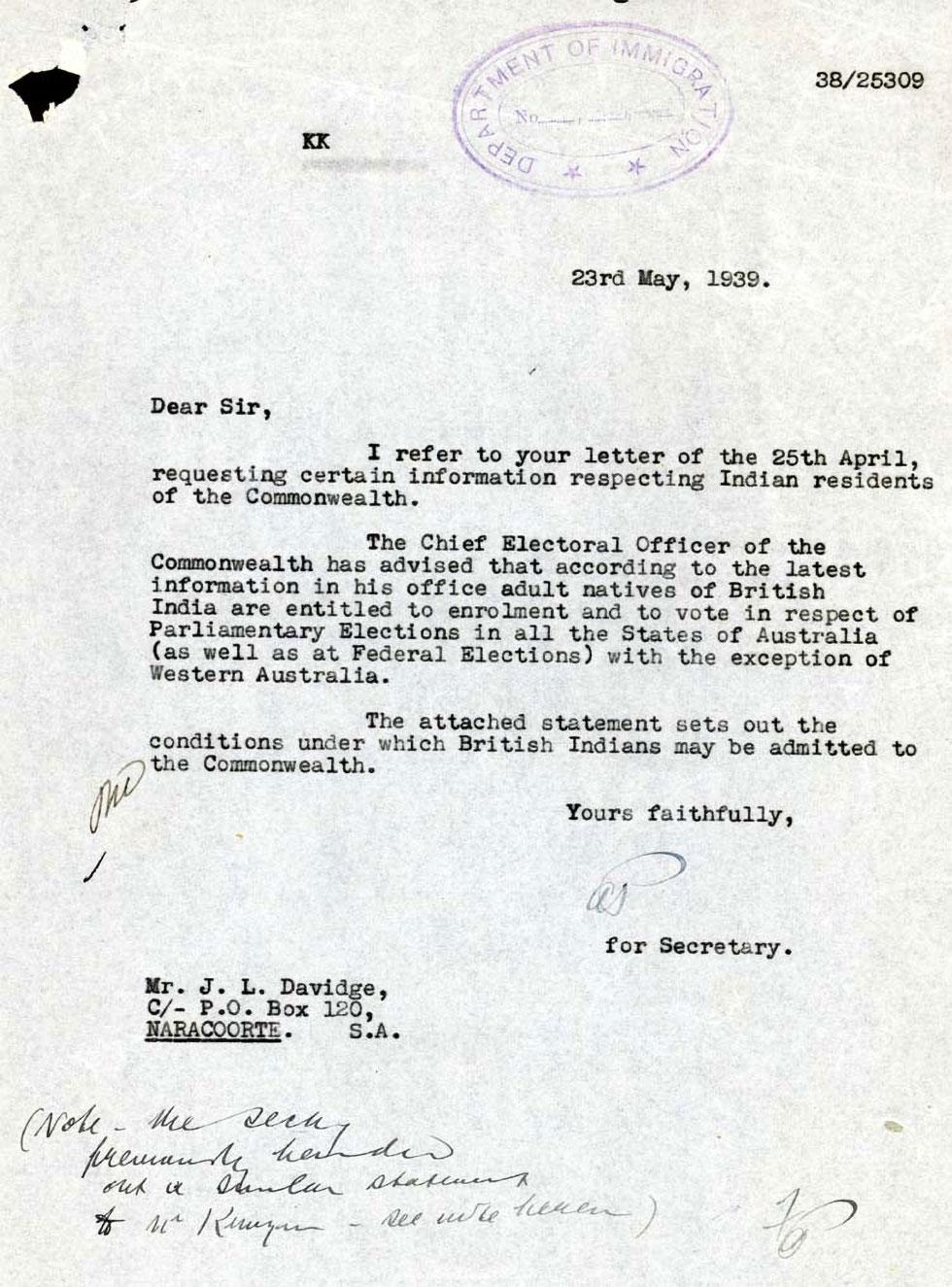
Letter to J L Davidge with information about voting entitlements of migrants from British India.
Aboriginal and Torres Strait Islander people should be aware that the National Archives' website and collection contain the names, images and voices of people who have died.
Some records include terms and views that are not appropriate today. They reflect the period in which they were created and are not the views of the National Archives.


Letter to J L Davidge with information about voting entitlements of migrants from British India.
[Stamped in purple ink: 'Department of Immigration'.]
38/25309
KK
23rd May, 1939.
Dear Sir,
I refer to your letter of the 25th April, requesting certain information respecting Indian residents of the Commonwealth.
The Chief Electoral Officer of the Commonwealth has advised that according to the latest information in his office adult natives of British India are entitled to enrolment and to vote in respect of Parliamentary Elections in all the States of Australia (as well as at Federal Elections) with the exception of Western Australia.
The attached statement sets out the conditions under which British Indians may be admitted to the Commonwealth.
Yours faithfully,
[Illegible handwritten initials]
for Secretary.
[Addressed to:] Mr. J. L. Davidge,
C/- P.O. Box 120,
NARACOORTE. [underlined] S.A.
[Handwritten addition:] (Note – the sectry [secretary] previously handed out a similar statement to Mr [illegible] - see note herein.)
[Illegible initials.]
Learn how to interpret primary sources, use our collection and more.
